

Imagine a world where healthcare tools understand your needs before even you do. This isn’t science fiction but the future of healthcare technology—a revolution that’s happening right now.
As the global healthcare system faces unprecedented challenges, innovations in technology hold the promise to transform patient care, making it more precise, accessible, and efficient than ever. Ready to uncover the hidden truths?
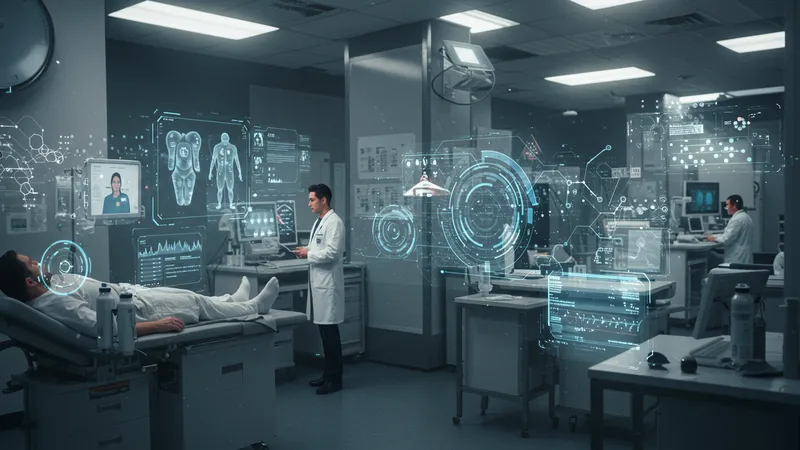
What if I told you that wearable devices aren’t just tracking your steps but could predict a heart attack days before it happens? These seemingly simple gadgets create a data-driven narrative, forecasting health events with astonishing accuracy. But that's not even the wildest part...
Meanwhile, telemedicine isn’t just a pandemic stopgap. It’s paving the way for a more democratized healthcare system where quality care is just a click away for everyone, regardless of location. Yet, there’s more brewing under this surface...
Experts once believed these innovations would take decades to unfold. However, the rapid advancement is breaking all timelines and expectations. What happens next shocked even the experts…
Artificial Intelligence is not just a fancy buzzword. It’s becoming the backbone of predictive healthcare analytics that save lives. AI-driven models now predict disease outbreaks, helping allocate resources where needed most. But there's one more twist...
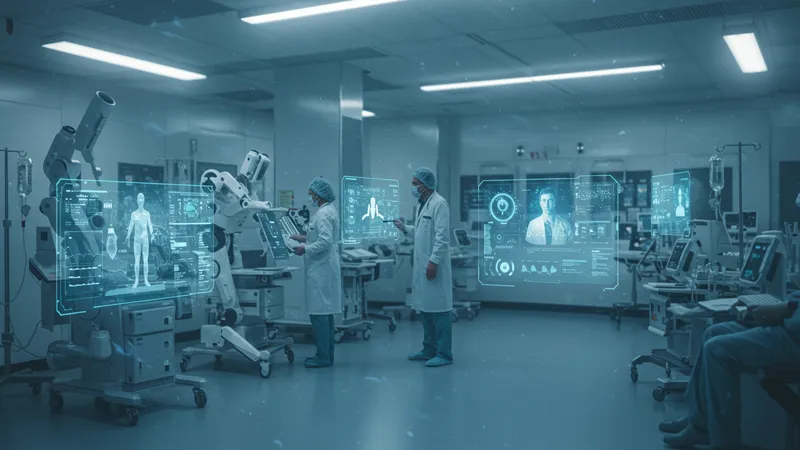
These groundbreaking AI technologies integrate seamlessly with existing hospital systems, significantly reducing diagnostic errors. A recent study revealed a staggering 85% accuracy rate in AI diagnosis against human doctors. But what you read next might change how you see this forever.
Robotic surgeries have also entered mainstream, offering patients minimally invasive procedures that reduce recovery times dramatically. Surgeons can now perform complex tasks with robotic precision that were once unimaginable. Yet, the real game-changer lies elsewhere...
AI is not just limited to diagnostics and surgery. It's transforming patient engagement through smart virtual assistants that manage appointments, deliver medication reminders, and offer health advice. But these are just the beginning of AI’s healthcare journey.
Remote patient monitoring is a true game-changer, allowing healthcare providers to keep tabs on patients' vitals from afar. Studies show it reduces hospitalization rates by 20%. But there's more to this than meets the eye.
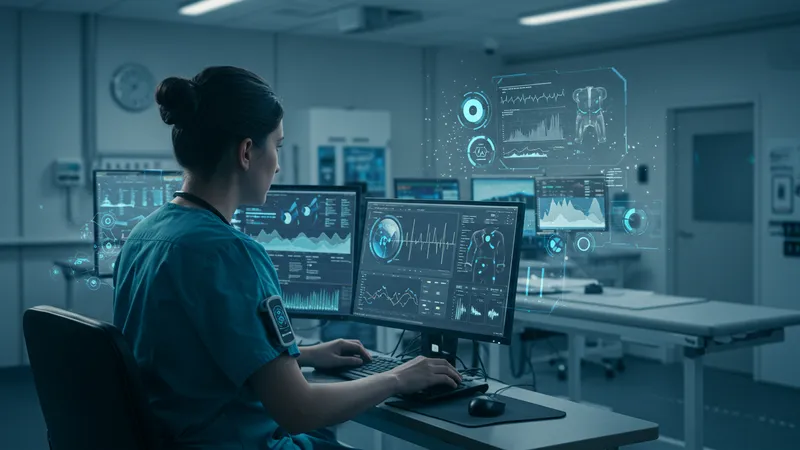
These devices provide a continuous stream of data—an ocean of information that, when analyzed, can predict health issues before they become critical. This unprecedented capability holds the potential to change healthcare as we know it. But don't take my word for it...
In rural areas, where healthcare resources are scarce, remote monitoring provides access to quality care like never before, bridging the gap and revolutionizing patient outcomes. But behind this achievement lies a remarkable story.
How hospitals are utilizing remote tech might surprise you. Facilities now offer remote wound care and mental health services, proving that this technology isn't confined to physical ailments alone. But what’s next is even more revolutionary.
Telemedicine has skyrocketed, with virtual consultations increasing by over 400% since the pandemic began. This rapid shift has made healthcare more accessible than ever, but that's just scratching the surface.

Patients now enjoy consultations from the comfort of their homes, minimizing the need for travel and reducing exposure to hospital-acquired infections. Yet, what might surprise you is how telemedicine is reshaping traditional roles.
Aside from easing access, telemedicine fosters a personalized approach to patient care, where doctors can engage more deeply with individuals. This trend continues to evolve, hinting at a fundamental shift in how we perceive healthcare. But the real impact is yet to be realized...
Moreover, with the integration of AI into telemedicine platforms, consultations could become more efficient and accurate, signaling a future where healthcare is more predictive and preventive. What you’ll discover next is even more startling.
While digital health records might seem mundane, they are spearheading a silent revolution in healthcare. These records offer seamless data transfer across providers, enhancing patient experiences. But there’s a hidden gem in this innovation.
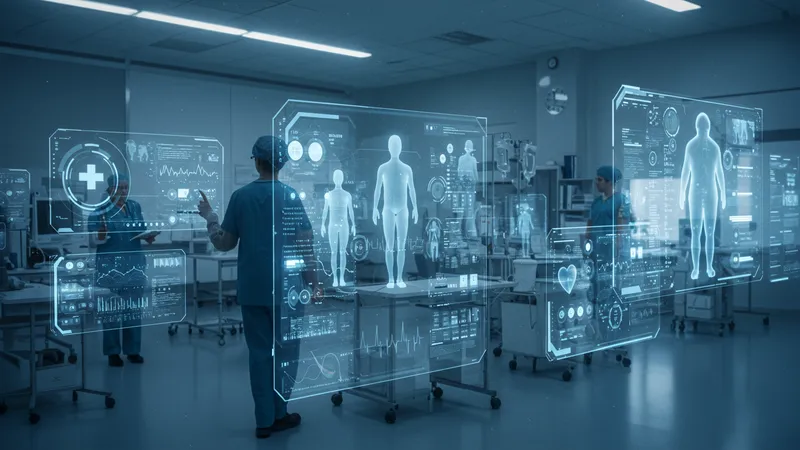
The integration of electronic health records with AI algorithms enables predictive analytics, which forewarns practitioners of potential health risks. Such capability is invaluable. But as you delve deeper, unexpected challenges emerge...
Concerns over privacy and cybersecurity are real, yet the benefits outweigh the risks. By streamlining data, we unlock hyper-personalized care tailored to individual needs, and this personalization is just the beginning of the transition.
Furthermore, universal access to digital records equips patients with ownership over their health data, fostering an informed and proactive approach to personal healthcare. Yet, what happens next might just surprise you...
Genomic medicine is another frontier, using genetic information to tailor treatments and predict disease susceptibility. Scientists have already started decoding genomes at an unprecedented pace. But the implications are even more profound than you think.

This personalized approach enables more effective treatments by targeting specific genetic markers, reducing trial and error in medication administration. Yet, there’s a twist in this evolving narrative...
The decreasing cost of genome sequencing has made this technology more accessible, democratizing information that was once reserved for the elite. But this advancement is causing ripples beyond healthcare itself.
From rare disease management to cancer prevention, genomic medicine is rewriting the rules of engagement in medical care. However, it also raises ethical questions that need addressing. What you discover next might alter your perspective forever...
Wearable technology is no longer just about tracking fitness. Today, it provides life-saving data, offering insights into chronic conditions and early warning signs for potential health issues. But there's much more happening under the hood.

Advanced wearables are equipped with sensors that monitor everything from heart rate variability to sleep patterns, providing richer data for healthcare providers. This evolution marks a new era in patient monitoring, but there’s a looming question ahead...
The integration of AI into wearables collects and analyzes data in real time, delivering invaluable health insights. This seamless fusion is introducing a revolutionary model of care, driven by predictive analytics. Yet, the future holds even bigger surprises...
Furthermore, wearable technologies are fostering patient empowerment, encouraging individuals to take charge of their health proactively. However, as innovation accelerates, one clear concern emerges—how will regulatory bodies adapt?
Blockchain technology offers a transparent, secure solution for healthcare data management. It promises to revolutionize data sharing while maintaining privacy. But the transformative potential extends much further.

By creating a decentralized ledger, blockchain ensures accurate patient records, eliminating duplicity and error. The potential to streamline and secure medical data is unmatched. But there’s still a critical piece of the puzzle left unexplored...
Interoperability remains a significant challenge in healthcare. Blockchain’s ability to facilitate seamless, secure information exchange between stakeholders could break down existing barriers. But does it signal the end of traditional data management?
Additionally, by safeguarding sensitive information, blockchain builds trust in digital healthcare ecosystems. However, its adoption is still in nascent stages, and the journey ahead is filled with challenges and opportunities alike. But there's more on the horizon...
As technology advances, ethical considerations in healthcare innovation become increasingly complex. From patient consent to AI decision-making, the stakes are higher than ever. But there’s more to this intricate landscape.
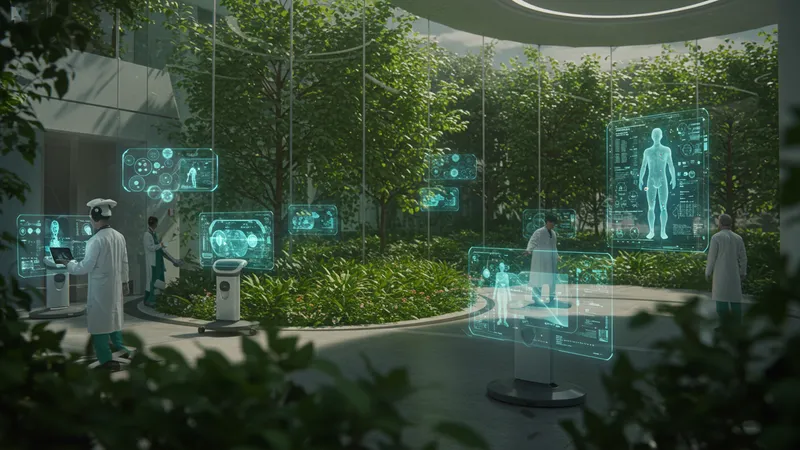
While technology empowers patients with better access to care, it also risks exacerbating healthcare disparities if not managed carefully. The ethical dilemma is profound, but what comes next could be transformative.
Regulatory frameworks must evolve alongside technological advancements, ensuring innovations align with ethical standards. But this transition is fraught with complexities that challenge both policymakers and practitioners.
The balancing act between innovation and ethical responsibility is a tightrope walk. As healthcare technology continues to evolve, its ethical dimensions will shape not just the future of healthcare but its very foundation. What you’ll read next might surprise you...
Having journeyed through the intricacies of healthcare technology, one thing is unmistakably clear: We stand on the cusp of a medical revolution that transcends traditional paradigms. The integration of AI, wearables, and genomic medicine heralds a new era that could redefine patient care forever.
As these innovations coalesce, they present both unprecedented opportunities and unique challenges. It’s time to embrace this brave new world and actively participate by sharing and championing these solutions, ensuring the benefits of the technological revolution reach all corners of the globe. The future of healthcare awaits—will you be part of it?